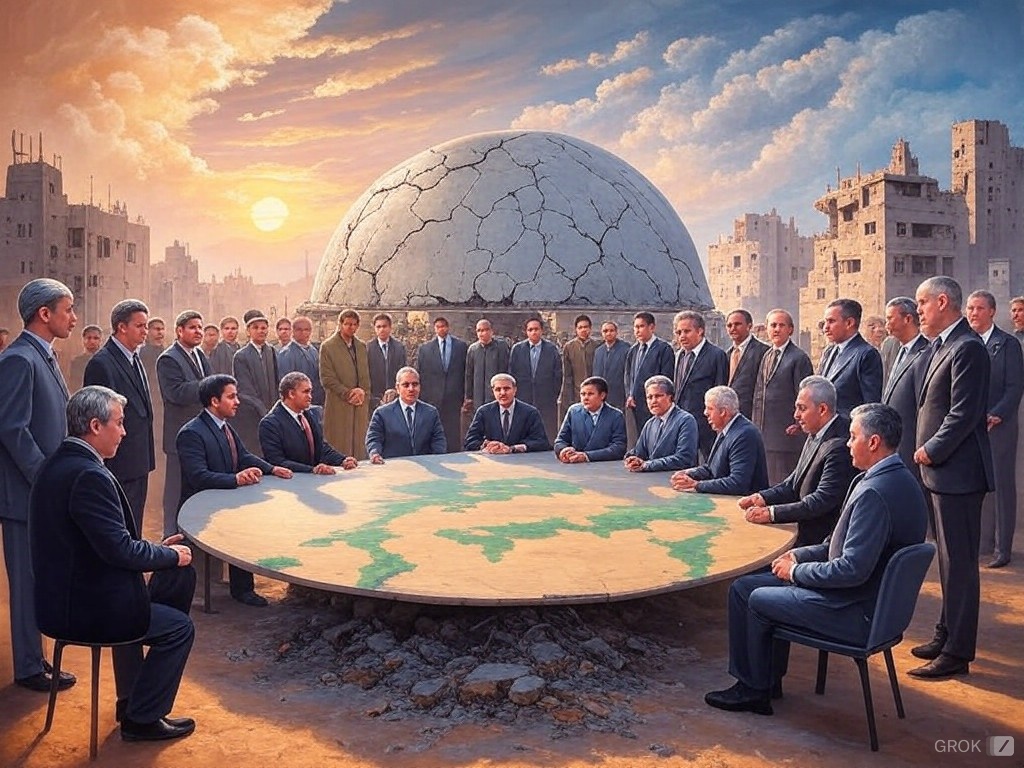
In an unexpected turn of events, the long-standing regime of Bashar al-Assad in Syria has crumbled, with rebels declaring control over Damascus. This seismic shift in Middle Eastern politics has sent shockwaves through the international community, prompting a reevaluation of alliances, policies, and the very structure of regional stability.
The Fall of Assad: A New Dawn or Descent into Chaos?
The collapse of Assad’s government, which had been in power for over a decade amidst civil war, was not just a local event but a pivotal moment in global politics. The Syrian capital now stands under the control of a coalition of rebel groups, whose political and religious ideologies are as diverse as their origins. This new power vacuum poses several questions:
- Who will govern Syria?
- How will the international community respond?
- What does this mean for the ongoing refugee crisis?
The Syrian rebellion has been a mosaic of different factions, including secular groups, Islamist fighters, and those backed by foreign powers like Turkey, Saudi Arabia, and to some extent, the United States. The sudden absence of Assad’s authoritarian control has left a complex puzzle for global powers to solve.
International Reactions
Russia: Having been one of Assad’s staunchest allies, Russia’s response has been one of caution and strategic maneuvering. Reports indicate that Assad has been granted asylum, suggesting Moscow might be preparing for a shift in its Syrian policy, potentially leveraging its influence to shape the new government or to secure its interests in the region.
United States: The U.S. has seen this as both an opportunity and a challenge. The Biden administration has expressed cautious optimism, focusing on humanitarian aid and supporting a democratic transition. However, with Donald Trump’s impending presidency, there’s speculation about a policy pivot towards more direct involvement or a complete strategic withdrawal.
Iran: As another key ally of Assad, Iran faces the prospect of losing a significant strategic partner. There’s concern about the potential for increased regional instability, with fears that anti-Iran factions might gain power in Syria.
Israel: Israel views the situation with a mix of optimism and apprehension. On one hand, the removal of a hostile regime is beneficial; on the other, the uncertainty of what follows could either stabilize or further destabilize their northern borders.
Europe: The European Union is grappling with the implications for migration policies and security. The hope is that a new Syrian government might facilitate the return of refugees, but there’s also concern about an increase in radicalization if the region spirals into chaos.
The Refugee Question
With Assad’s fall, the narrative around Syrian refugees could shift dramatically. Countries hosting millions of Syrians, like Turkey, Lebanon, and Jordan, are watching closely. A stable, inclusive government in Syria might encourage voluntary returns, but there’s also the risk of forced repatriation if conditions remain volatile.
The Global Chessboard
The Syrian situation exemplifies the interconnectedness of global politics. It’s not just about who controls Damascus but how this control influences the broader geopolitical landscape:
- Middle East Power Dynamics: The balance of power could shift, with countries like Saudi Arabia and Iran potentially vying for influence over the new Syrian regime.
- Global Anti-Terrorism Efforts: The presence of various militia groups in Syria remains a concern for international security. The new government’s stance on terrorism will be crucial.
- Economic Implications: Reconstruction in Syria will require international investment, which could either bring nations together or become a new battleground for influence.
Looking Ahead
The international community stands at a crossroads. The immediate actions of global powers in response to Assad’s fall will set the tone for Syria’s future and the stability of the Middle East. There’s a delicate balance to strike between supporting a democratic transition, ensuring security, and addressing humanitarian needs. The world watches, hopeful yet wary, as Syria begins to redefine itself in the absence of one of the longest-ruling families in modern history.
This moment in history serves as a reminder of the fragility of power and the enduring impact of geopolitical shifts on the global stage. As discussions continue to unfold on platforms like X, the collective narrative of what a post-Assad Syria might look like is only beginning to be written.

